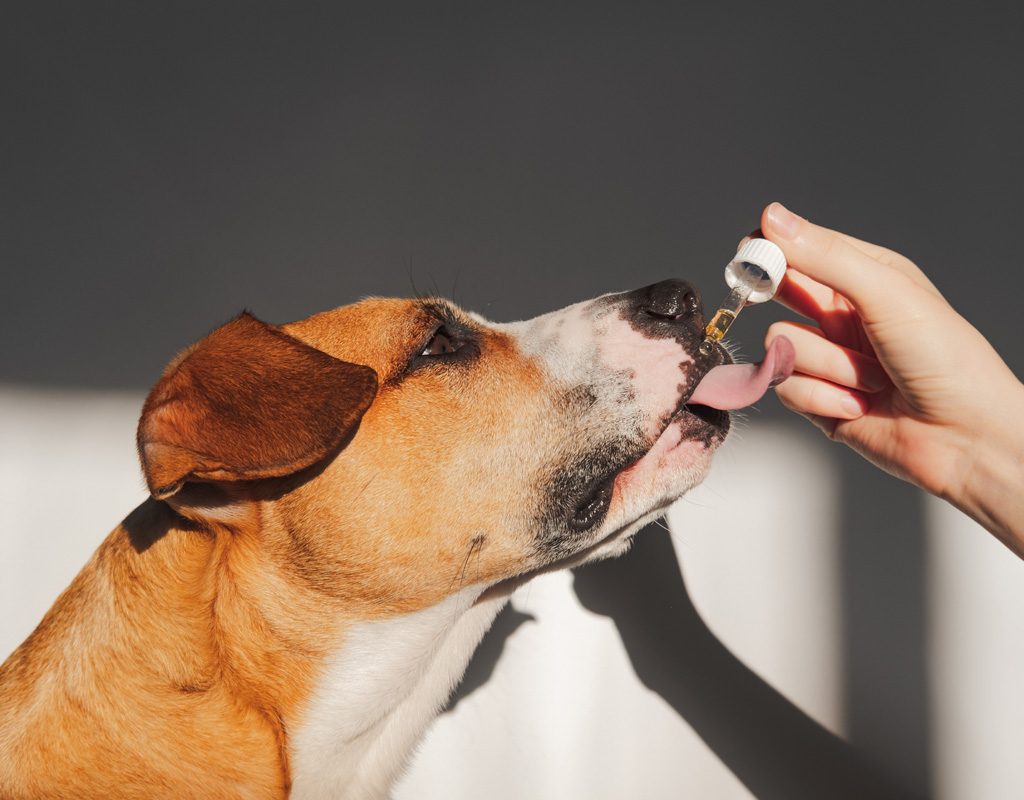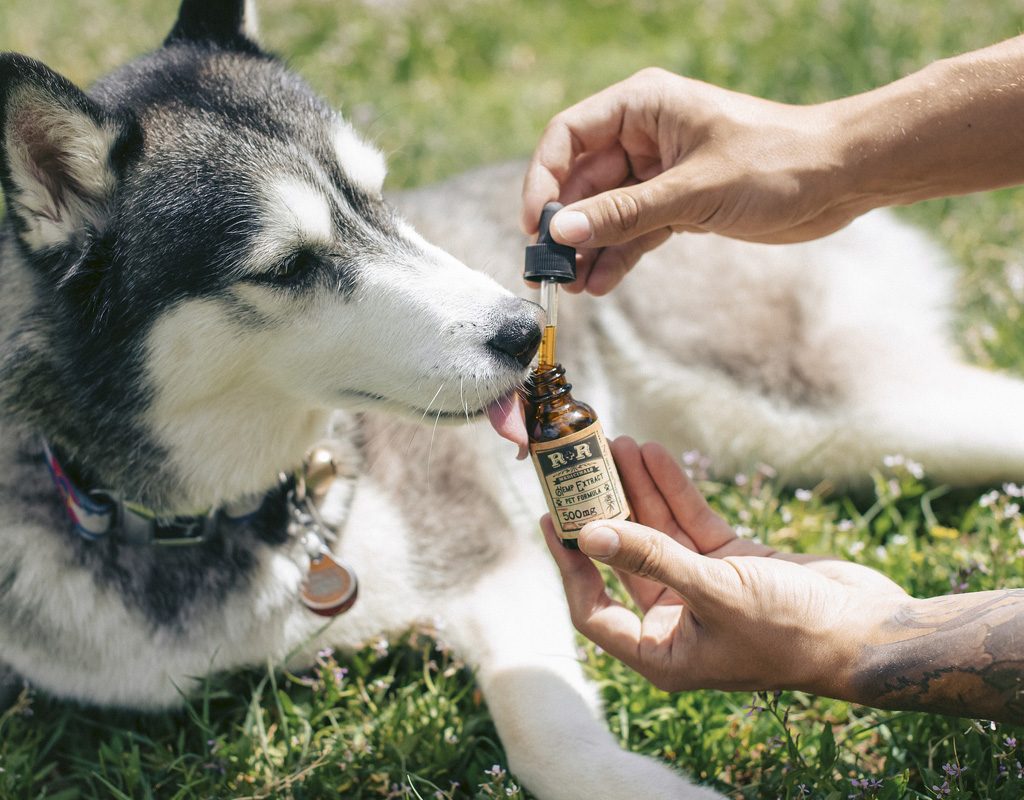If you spend any time hanging out with dog people, you’re sure to have heard about CBD oil for dogs. There’s a growing trend of pet parents using CBD products in the form of oil or treats because they believe it helps ease their dog’s aches, pains, and anxieties. According to the Brightfield Group, a consumer insights firm for the CBD and cannabis industries, pet parents spent $426 million on CBD products in 2020. The research firm expects that the market will reach $629 million by the end of 2021. Read on to learn what you need to know about CBD oil for dogs.
What exactly is CBD oil?
Cannabidiol (CBD) is one of the hundreds of compounds found in cannabis and hemp plants. It comes from the leaves, flowers, and sometimes the stem of the plants. According to the Alcohol and Drug Foundation, the two main cannabinoids found in these plants are delta-9-tetrahydrocannabinol (THC) and CBD. The main difference between these two compounds is that THC has strong psychoactive effects, giving the user a “high,” while CBD doesn’t cause intoxication. The compound CBD is gaining in popularity for its potential therapeutic and pain-management effects. Researchers say that the hemp plant contains only trace amounts of THC while containing strong concentrations of CBD. It’s extremely important that pet owners use only hemp-derived CBD oil as THC is toxic to dogs.

Is hemp-derived CBD oil legal?
The 2018 Farm Bill legalized cultivating and producing industrial hemp and removed the crop from the federal list of controlled substances. Hemp-derived CBD contains less than 0.3% THC and is sold in most states and online, according to an article published in Pet Product News. Under the new laws, hemp is managed by the U.S. Department of Agriculture as a crop rather than by the Department of Justice as an illegal substance.
Does CBD oil help dogs?
Research on the effects of CBD in humans has been happening for years, but similar research for pets is only just beginning. Within the veterinary community, many questions still persist when it comes to using CBD oil on pets, including the safety, efficacy, and proper dosage. The American Veterinary Medical Association (AVMA) is actively encouraging well-controlled studies into the uses of cannabinoids and is working with the U.S. Food and Drug Administration (FDA) to encourage the development of veterinary-specific products. However, preliminary veterinary studies show positive results.
- A 2018 study by veterinarians at Cornell University and published in Frontiers in Veterinary Science found that treating osteoarthritic dogs with CBD oil led to a significant decrease in pain and an increase in activity level.
- In 2016 and 2017, Stephanie McGrath, a neurologist at Colorado State University’s James L. Voss Veterinary Teaching Hospital, conducted a study to assess the use of CBD oil for dogs with epilepsy. McGrath described the results as “promising and exciting.” Based on her research, McGrath found that 89% of dogs who received CBD in the clinical trial had a reduction in the frequency of seizures.
Anecdotal evidence from dog owners says that CBD oil helped their dogs in numerous ways, including easing inflammation, soothing nausea, stimulating appetite, easing pain, controlling seizures, and boosting heart health. Veterinarians have also reported positive results when they used CBD oil on their pets. In an article published in the spring 2020 issue of the journal Today’s Veterinary Nurse, Jeffery Powers, chairman of the AVMA Council on Biologic and Therapeutic Agents, said he gave hemp-based CBD oil and treats to Ella, his Saint Bernard. Ella suffered from arthritis and severe storm anxiety. Powers said that Ella did “extremely well” on CBD and added that the product may be “a good alternative to NSAIDs, which can cause problems in some pets.”

What to consider when purchasing CBD oil for dogs
Keep in mind that there are no FDA-approved CBD oil pet products on the market. An article in Discover magazine cautions pet owners that there are lots of “bad actors looking to take advantage of a booming industry.” The magazine put together a list of the best CBD oils for dogs in 2021 based on several different criteria, including expert input from the veterinary community, feedback from consumers, and the transparency of manufacturers.
When choosing a CBD oil for dogs, experts at the American Kennel Club offer the following tips:
- Choose an organic oil that’s free of pesticides, fungicides, or solvents.
- Expect to pay more for high-quality pure CBD oil. Cheaper products could contain toxic substances.
- Ask the manufacturer for a certificate of analysis. Reputable companies will partner with a third-party testing facility to certify the quality of the CBD oil.
- You can buy dog treats containing CBD, but the best form to administer is an oil or tincture. This allows you to adjust your dog’s dose drop by drop.
If you’re thinking about giving CBD oil to your dog, be sure to discuss it with your veterinarian first. While she may not be able to prescribe or recommend a CBD oil product for dogs, she can alert you to possible side effects. Your veterinarian can also caution you about possible negative interactions with other medications your dog might be taking. Working as a team, you can both monitor your dog to see if the CBD oil is actually helping to improve her quality of life.



